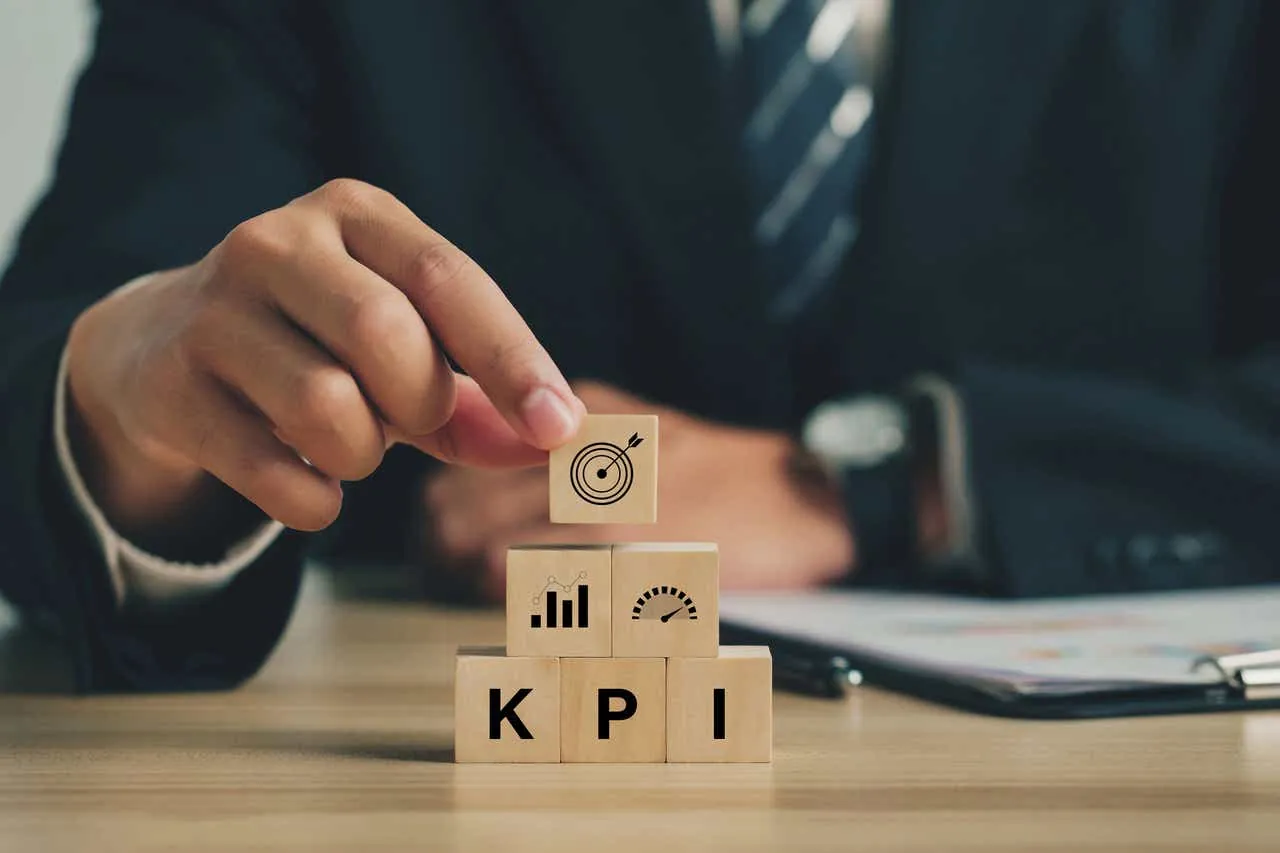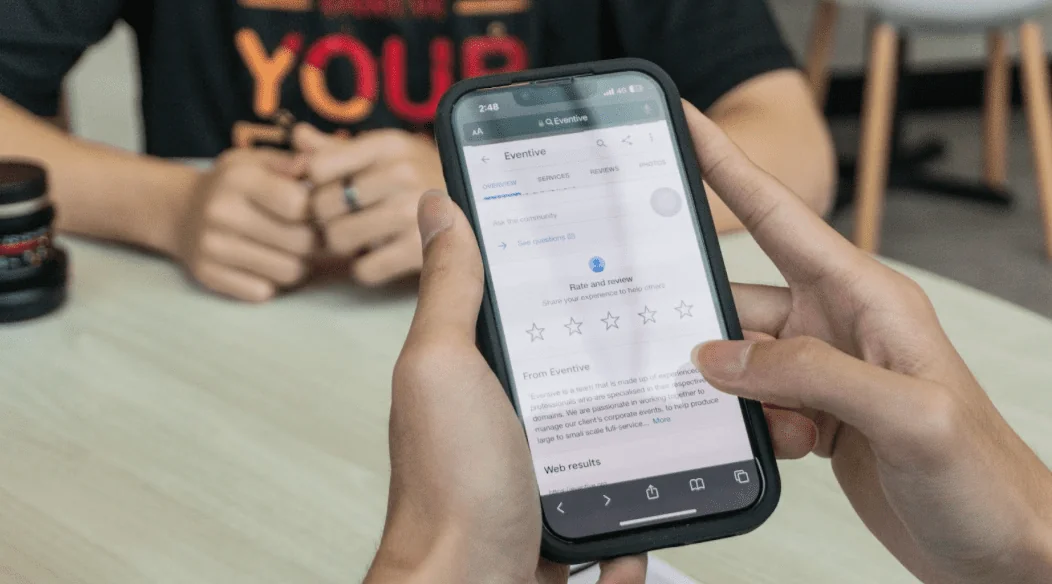
5 Key Considerations For Corporate Events Planning
October 5, 2023
Enhancing Event Management with Technology
August 9, 2024Measuring and Evaluating Impact of Corporate Events
Tips & Tricks · 26 Oct 2023
Corporate events require significant investments in terms of time, resources, and budget. To ensure these efforts are fruitful, it is essential to evaluate the impact of these events accurately. By measuring key performance indicators (KPIs) and analysing data, you can gain valuable insights to assess the success of your corporate events and make informed decisions for future planning. Here are the key points to consider when evaluating the impact of corporate events.
Set Measurable Objectives

Check Out Eventive's Event Planning Services
Objectives serve as a benchmark to evaluate the impact of corporate events, and measurable ones provide a clear framework for assessing its success and effectiveness. Having a well-defined, quantifiable objective will establish a direction for the event, which can be a parameter for how impactful your corporate events are. The number of attendees, amount of donations from crowdfund or fundraiser, and event page visits are some quantifiable objectives that can be used to evaluate the impact of your event.
In addition, analysing attendee engagement, media coverage and donor retention can also be taken as quantifiable objectives despite the elements sounding like quality-based ones. There is software available to analyse them, which will be addressed in the later part of this article.
Compare Against Objectives

Check Out Eventive's Event Planning Services
Comparing event objectives to determine effectiveness, success and, of course, the overall impact to attendees! The best practice is to start with defining the metrics and how to measure them, and you can consider employing the method SMART! This method stands for specific, measurable, achievable and time-bound, a structured approach that can help you plan and execute successful corporate events.
Once the objectives have been defined, collect relevant data from your event, including the previous one, or alternatively from your competitors as a benchmark. Many software tools can be utilised to perform analysis and comparison from your collected data. This software includes event analytics tools like Aventri, Bizzabo and Social Tables that can provide necessary insights to improve future event as well.
In addition, remember to categorise the objectives based on their focus, such as branding, marketing, educational or networking purposes. Having these categories will assist you in tracking articulating your progress better and provide a clearer structure to compare results and impact from previous corporate events you have organised. Not only will it help in avoiding mistakes during event planning, but the comparison can serve as a guide for future event planning as well.
Define Key Performance Indicators

Check Out Eventive's Event Planning Services
In determining the success and effectiveness of your corporate events, it is essential to define your Key Performance Indicators (KPIs) to provide tangible values to the event’s impact. Some critical KPIs that can be tracked include ticket sale, registration rates, Return on Investment (ROI), sponsorships and other revenue streams to gauge whether the event is making or costing more money. This helps determine future decisions on upcoming event budgeting and allocating resources.
Collect Comprehensive Data
Measuring an event’s impact goes beyond evaluating the number of attendees or revenue generated alone. There needs to be a comprehensive data collection, entailing various aspects throughout the corporate events. This data could be procured from the retention of the crowd, measuring attendees’ engagement and gathering feedback.
Using a key metric called Customer Retention Rate (CRR), it can gauge your attendees’ retention towards the brand. Calculating your Customer Retention Rate can be done by finding out the amount of customers you have retained at the end of a given period. For example, you start with 1000 customers, gain another 300 within a specific time, and end with 1200 customers. The loss of 100 customers within the time frame means your CRR would be 90%.
There is likely a pattern that can be observed to understand the trends among the attendees and their attitude toward your brand. Observation of when you have gained and lost customers can be a guide to analysing the pattern as well. This method can be used to collect different types of data and also help you to see the impact and pinpoint the weakness throughout your corporate events agenda.
Measure Attendee Engagement

Check Out Eventive Event Management Services
Next, you can collect comprehensive data by measuring attendee engagement. Attendees’ engagement can be quantified through workshops and interactions coming from them, which is what makes corporate events so important for brand insight. This can easily be converted into data by utilising an event app or gathering audience responses through some tracking devices.
Many mobile event applications, such as SpotMe, Airmeet and Whova, are readily available for your corporate events. Complete with features such as Q&A, surveys and event agenda, these applications will encourage your audience to be more responsive and organising events becomes a smoother experience for you. These positive networking interactions and participation make it easier to track data-driven assessments for your event.
Gather Feedback

Check Out Eventive's Event Planning Services
Aside from calculating customer retention rate and measuring attendee engagement, comprehensive data can be collected by gathering feedback. This can be done effectively by analysing the input received from attendees, sponsors and stakeholders. It can be executed with two approaches: Open-ended Responses and Segmented Feedback.
An open-ended response is a survey that encourages participants to answer based on their understanding of the corporate events. This type of response is it offers more data as compared to the close-ended one. Unlike close-ended surveys, it encourages more detailed information from the participants. It is a medium to gauge the impact and make a valuable contribution to strategic uses of corporate events as well.
Alternatively, responses can also be compiled through segmented feedback, which is done based on the attendee’s demographic, sessions or any other categories that are relevant as a segmentation. This helps in evaluating the impact of your corporate events on different experiences, which is practical for a targeted area of improvement.
Consider Brand Perception

Explore Eventive's Product & Sales Launch
Customers’ perceptions are vital for any company because business is built on customer relationships. To enhance and maintain a good brand perception, you must always address attendees’ concerns, especially during corporate events. By addressing these concerns, it demonstrates your commitment to provide positive experiences and builds trust for the brand as it promotes transparency.
This can be done through hearing the positive and negative reviews of your brand. Insight coming from those who feel strongly enough to express their opinion will be a valuable element in gauging how customers perceive your brand. Showing such responsiveness and accountability in corporate events will paint the company as a responsible organisation, improving the brand’s general perception.
Benchmarking

Explore Eventive's Event Planning Service
Benchmarking the impact of your current corporate events works by comparing how your efforts are paying off compared to the previous events you have organised or of a similar nature in the company. With a collection of data from both events, this data-driven approach aids in evaluating the impact and refining strategies to generate positive outcomes.
So, how to measure the data for the benchmarking? The easiest way is to narrow your questions and specify which area to improve. Sales revenue, number of ticket sales, and sponsors’ satisfaction surveys are some of the data that can be used as a comparison for benchmarking purposes.
There are tools available to assist the process, which include data integration platforms like Zapier or Integromat. It is really your decision to choose the suitable parameters that work best with your corporate events. After deciding on the parameters, set a target and find a solution in areas where your event is lacking to maximise the impact next time.
Reflection: Learn and Improve
The success of corporate events is not solely measured by how impactful it is alone but also by the continuity of improvement from each event to enhance future experiences for the attendees. With meticulous planning for an effective event, your effort can be a tool for a compelling avenue for your company.
Valuable Insights for Future Corporate Events
Evaluating the impact of corporate events is critical in assessing their success and optimising future event strategies. Businesses can gain valuable insights into the event’s performance by setting measurable objectives, defining KPIs, collecting comprehensive data, and analysing attendee engagement and feedback. Calculating ROI, assessing social media reach, and considering brand perception further contribute to a holistic evaluation. With this information, companies can make data-driven decisions to refine their corporate events, maximise their impact, and drive long-term business success.
Let’s Collaborate.
Get in touch with us for your next event!
We hope you enjoyed this article “Measuring and Evaluating Impact of Corporate Events”. Head on to Our Works to see the events we have managed!
If you are looking to manage an event, then look no further than us.
